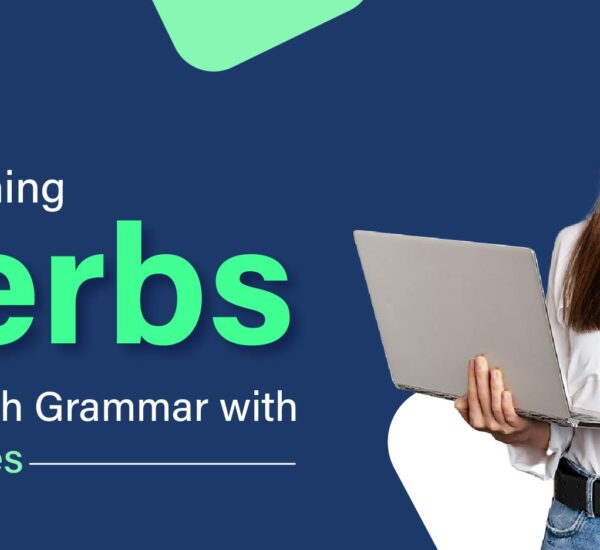Transitive and Intransitive verbs are crucial for English learners to know and understand. These verbs are described according to their expression of an object partly or completely. These verbs are a must-know to be effective while speaking, writing, reading, and most importantly listening to English.
If you are not aware of the usage of these verbs, you will not acknowledge the sentences somebody will speak to you or you will make wrong meanings out of some particular sentences.
So, if you want to speak, write, and listen to English perfectly, you need to go through this article till the end. What are transitive and intransitive verbs? Let’s learn here. You will not only understand the definition and functions of these elements but also will know the usage with the help of the examples present in the article.
So, let’s not wait and jump to the information right now to be proficient with the language before professionals as well as personal people. So, let’s get started!
Also Read: What are Antonyms and Synonyms? Why Should You Know Them?
Transitive and Intransitive Verbs
These verbs can be described according to their functions whether they require an object to express a complete thought or not. You can use these verbs to express your thoughts. People think that transit is the meaning of transitive ones which misleads them to assume that these verbs are fancy ways of describing action and nonaction.
You should understand that these verbs have nothing to do with being active or inactive. You can understand transitive as to transfer because transferring thoughts is the fundamental function of these verbs. These verbs are quite frequently used in sentences. This is why you should understand the use of these verbs perfectly to use them before others as well as to understand when someone else speaks.
There are a few verbs that can be denoted as both transitive and intransitive verbs. You will get perfect examples in the article ahead. So, keep reading ahead and acknowledge all the important factors.
Transitive Verbs in English Grammar
A transitive verb is used with an object. These verbs can be used with a noun, pronoun, or phrase. This object refers to the person or thing that is affected by the action of the verb. These verbs not only take an object but demand objects.
A sentence will not seem complete if there is no object to affect by the verb. Now, let’s understand the concept in the following sentences. Admire, maintain, face, and love are transitive in the given examples. Let’s have a look at them!
#. I admire your courage.
#. We need to maintain product quality.
#. I couldn’t face him today.
#. She loves animals.
#. The women carry water to their village.
#. Ratchet threw the ball.
#. Could you phone the brothers?
#. I caught a cold.
#. Ranj loves rainbows.
#. Mehul conveyed the message.
So, you must have understood the functions of the transitive verbs that they need an object to make sense. They are senseless without an object.
Also Read: What are the Essential Skills to Become Fluent in English? Steps Towards Fluency in English
Intransitive Verbs in English Grammar
Do you want to know the intransitive verbs? Let’s understand it. Well, an intransitive verb is something that does not have an object. Unlike transitive verbs, it does not require any object to act upon. In the following sentences, you will understand the functions of these verbs through examples. The words including cry, work, laugh, and talk are intransitive verbs are given below:
#. The baby was crying.
#. I work for a large firm in Paris.
#. They laughed uncontrollably.
#. We talked for hours.
#. They jumped.
#. The dog ran.
#. She sang.
#. A light was shining.
Now, you must have seen that none of these words has required an object to make sense and all of them have ended a sentence with complete meaning. These verbs can be used without the objects and you can also go through the examples below to understand them better.
Transitive and Intransitive Verbs Examples
Transitive Verbs Examples
| Verb | Example |
| give | Meenakshi gave me a purse for my birthday. |
| buy | Can I purchase you a bucket? |
| pass | Geeta passed her a cup of tea. |
| make | Shall I make us some snacks for supper? |
| sell | Kim was trying to sell me her bicycle. |
| take | We took Karan some chocolates and flowers. |
| show | Show me your vacation pictures. |
| offer | The organization has offered me an internship. |
| leave | Leave me a text and I’ll get back to you. |
| wish | Everyone wished us all the best for the mission. |
| lend | Could you lend me £65? |
| cost | Jack’s mistake cost him his career. |
Also Read: Simple Past Tense Errors: Here’s Your Guide to Correct English Grammar
Intransitive Verbs Examples
#. “Rivers flow.”
#. “I sneezed.”
#. “My dog ran.”
#. “Water evaporates when it’s hot.”
#. “You’ve grown since I last saw you!”
#. “I wonder how old I will be when I die.”
The following sentences contain transitive verbs. These contain one or more objects. Let’s read them:
#. “We watched a movie last night.”
#. “She’s making promises.”
#. “When I said that, my sister smacked me.”
#. “Santa gave me a present.”
#. “He continuously clicked his pen and it was incredibly annoying to me.”
Transitive or Intransitive Verbs Examples
A few words can show both transitive and intransitive ones. A few common examples are given below:
| Verb | Transitive | Intransitive |
| move | Could you move your bike, please? | The clothes were moving in the breeze. |
| start | Joe was found guilty of starting the argument. | The party starts at 6 p.m. |
| change | Job hasn’t changed her. | The locality has changed greatly in the last decade. |
| close | Close your eyes; I’ve got a gift for you. | Most companies here close at 6:00 p.m. |
| open | Open the door; it’s too cold in here! | The shop opens at 10:30 a.m. |
| stop | John tried to stop her from leaving. | When the rain stopped, we went shopping. |
| do | Have you done your homework? | Kareena is doing well in her new job. |
| set | Katrina set a chair next to the table. | The sun was setting and a red glow filled the sky. |
| run | Ram used to run a coffee shop. | The path ran over the mountains. |
| live | Our dog lived till he was 9. | He was living a life of luxury in the Himalayas. |
| wash | Have you washed your face? | He washed, dressed, and went out. |
| write | Write your address here. | Kelvin and Robin couldn’t read or write. |
Also Read: Antithesis Figure of Speech: Check Out the Meaning and Examples of Antithesis!
Verbs in English
Verbs in English are used in sentences to express your thoughts. Apart from transitive and intransitive verbs, phrasal verbs are also used which can be classified as these verbs.
For example, Cinderella has decided to give up sweets while she diets or I hope Cinderella doesn’t give up. In this sentence, give up is a word that can be used as a transitive as well as intransitive form. Giving up can convey both meanings in different sentences. You should understand that the first sense of giving up means “to forgo something,” whereas the second sense means “to stop trying.” Many examples can let you understand this factor.
These are important to understand because they are used commonly in sentences. If you are not aware of the usage, you will not be able to understand when someone will speak before you or if you are reading something. Therefore, if you want to be professional with the language, you need to master all the spheres of it.
Also, you should practice making the sentences and using them in some conversations to use them correctly. We hope that the above-given examples have helped to get an understanding of this aspect of Grammar.
Also Read: Types of Figure of Speech in English: Examples of Figurative Language to Ace English
Conclusion
Do you think this article has helped you in gathering all the information about transitive and intransitive verbs? Do you want to learn more English grammar aspects to be proficient in the language? Do you want to seek more opportunities by speaking fluently? If you have these things in your mind, you should visit the Fluent Life website where you will get unlimited articles for your benefit.
You will learn exponentially and speak all the sentences correctly and effectively. We hope that the examples given in this article have helped you gain all the potential knowledge about the verbs. This article has completely talked about the functions of verbs. You can learn English and all the learning spheres under the experts.
The professionals and experts present on the website will guide and mentor you perfectly on each step to be excellent. You can also download the Fluent life app to take lectures and learn at your own pace. The customized lectures are designed to let you get the knowledge according to your capabilities, potential, and speed.
You can raise your queries and also will be able to take the tests to acknowledge your performance. The application is also available for iOS so that all learners can get an opportunity to develop their skills with the best platform.






